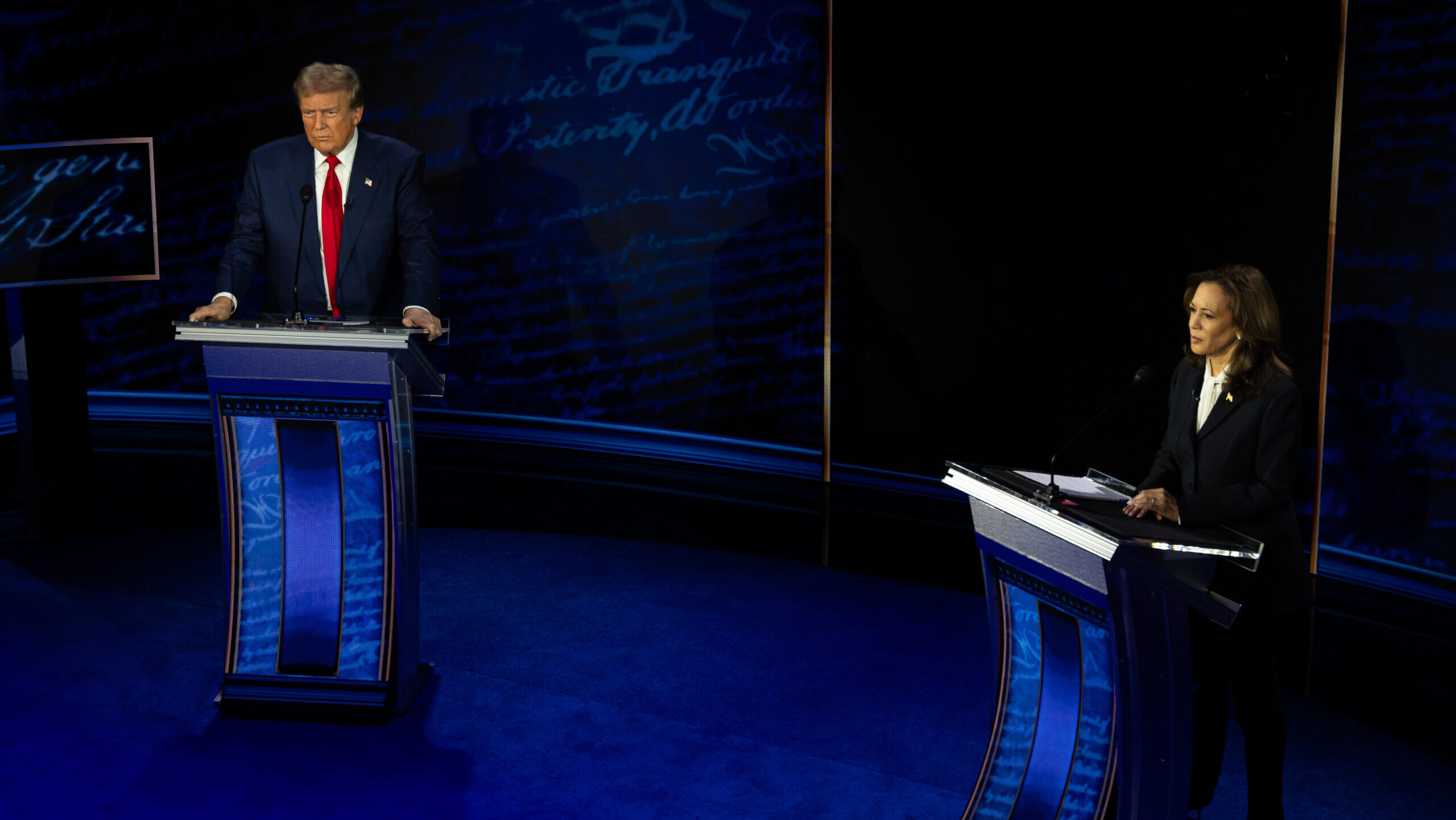
Election season is upon us, which means think tanks are beginning the quadrennial ritual of providing unsolicited advice to a new administration in the form of “transition papers.” Scholars typically write these papers on a single topic within their area of expertise (“Bringing Peace to Gaza”), which the institution collects into volumes.
The work benefits everyone in the ecosystem. A well-crafted transition paper might influence policy or even land the writer a senior governmental position, while think tanks exist to help produce better policy through research; transition papers offer the opportunity to do this with a vehicle aimed directly at the top.
But are these papers actually useful to a new administration? And how are consumers to interpret them? The truth is that most “transition papers” are actually op-eds, ignoring the political realities that administrations must deal with, and contain advice that is not actionable. Too often, they are self-indulgent fantasies and not useful to a new administration.
As a veteran of the transition paper circuit, I’d like to offer some lessons learned from past efforts. These suggestions might help craft transition papers that are clearer about what they are doing and, ultimately, make their products more useful to a new administration.
Remember Politics Matters For Policy
From the outside, all transition papers look like serious efforts to help a new administration take power and govern effectively. The papers are largely well-crafted and written by people who know what they’re talking about. A key problem, however, is that many, even most, authors can’t decide on the purpose of their writing.
One purpose is to give advice that the new administration might use. This requires acknowledgment of that administration’s campaign promises and ideological beliefs. For the half of the think tankers who might have voted for the incoming president, this is a comfortable exercise: They generally support the new administration’s platform, they often know campaign officials and can strongly believe in the advice they are giving.
However, even transition papers written by ideologically aligned scholars will not be helpful to a new administration if they don’t consider the administration’s campaign promises and political circumstances. Campaign promises might sometimes appear exaggerated or unrealistic to outsiders, but the new administration’s political advisors will want to satisfy whatever elements of their coalition supported the promise. Further, democracy is about the division of power, and unless the administration is lucky enough to solidly control both houses of Congress, it must shape its proposals into something that Congress might pass. To be useful, transition papers must acknowledge this, even if it means modifying preferred policies.
The other problem is that roughly half of the electorate will have voted for the losing candidate. That means that many think tank scholars face a gap, often a wide gap, between their personal beliefs and those of the incoming administration.
How to bridge that gap? One approach is to ignore the gap and write what the author thinks the new administration should do. But that’s not a policy paper, that is an op-ed. There’s nothing wrong with an op-ed: The media are full of them, and they are a valid way of putting out ideas to influence the electorate and the policy community. They are the think tank’s bread and butter. However, being inconsistent with the new administration’s views, they don’t “transition” anything. Better to call these op-eds and dispense with the transition paper label.
Another approach is to seek common ground. That’s attractive in theory but difficult in practice because it means compromising many core beliefs to find agreement with an administration that the writer does not support. A personal story captures the difference between the two approaches.
Trump’s election in 2016 was a shock to the DC think tank community, which had generally believed that Clinton would win. Nevertheless, work on transition papers went forward. I talked with another staff member about doing a paper on energy. Trump had expressed skepticism about climate change and the previous administration’s plans for dealing with it, so I suggested finding some common ground. For example, the Department of Defense had done analysis showing that there was tremendous payback for upgrading heating and air conditioning systems. DoD had 285,000 buildings, many with old, inefficient systems. The investment aspects (payback within three years) might be attractive to a Trump administration, while the reductions in carbon emissions would appeal to environmentalists.
Could we write a paper together and identify some bipartisan common ground? Many Republicans were looking for a middle way that did something for the environment without going full “Green New Deal.” No, my colleague responded, the Trump administration should sign the Paris Climate Change Accords, set aggressive targets for fossil fuel transition, and subsidize sustainable fuels. I replied that they had campaigned against those actions. Doesn’t matter; it is what they should do. So, the resulting paper might have been ideologically pure, but it was useless for influencing Trump administration policy.
Get Close, But Not Too Close
Given the fierce competition in the “marketplace of ideas,” think tanks sometimes “jump the gun” by publishing before the election to gain much sought-after visibility. However, with the election results unknown, papers must be written without referencing the new administration’s beliefs or the political environment in which it must operate.
In this indeterminate space, it is easy to drift into writing vague policy platitudes: “Redouble efforts to find a just and lasting peace in the Middle East.” (Would we ever want an unjust and temporary peace?) “Strengthen the U.S. position in the Pacific through smart diplomacy.” (As opposed to stupid diplomacy?) “Encourage NATO allies to meet and exceed the two percent of GDP military spending target.” (Having allies spend more has been a US goal for 70 years.)
Alternatively, these papers can take a descriptive approach, analyzing challenges ahead and what decisions will need to be made. By leaving out recommendations, the papers are bipartisan, helping whichever party wins. However, the descriptive approach makes them background papers rather than transition papers —research material for developing a policy paper. The Congressional Research Service, an arm of the Library of Congress, is good at this. They describe an issue and pose questions for Congress rather than recommendations. For most think tank writers, leaving out recommendations and references to their preferred policies is difficult in Washington’s highly partisan environment.
Heritage Foundation’s Project 2025 (technically “A Mandate for Leadership”) is unique in the transition paper ecosystem. Even think tanks with close ideological ties to a candidate are usually separate from the campaign. What made Project 2025 unique was having so many former Trump appointees participate. In April, Trump referred to it positively: “They’re going to lay the groundwork and detail plans for exactly what our movement will do.” That gave it the aura of being a campaign document, not independent advice. Indeed, Heritage initially encouraged that kind of thinking. Now, the project has become a political liability because it laid out policy specifics. Campaigns rarely describe trade-offs or identify losers should they win. Project 2025 did that. They were quite correct that governing requires tough decisions (“to govern is to choose”), but campaigning does not.
What can think tanks learn from this? As attractive as close alignment with a candidate might be, think tanks need to provide campaigns with a gap for plausible deniability. Campaigns must be able to say, “We appreciate all inputs and will consider them at the proper time.” Once the election is over, think tanks can gather specific scholars and former government officials who might be closely aligned with the candidate and provide something that links closely with the now pending administration. That work might begin before the election but should never be published before the election.
Quality Writing Matters
Campaigns might conclude from the Project 2025 experience and the lack of usefulness in most transition papers that they should develop the papers themselves, soliciting them from supporters, former administration officials, and the party faithful. Such papers would be non-public and ideologically aligned with the campaign. Unfortunately, transition papers are much harder to write than many people think. For all the problems that think tank transition papers may have, they are written by experts who write on policy for a living. There is no substitute.
Another personal story is relevant here. Many years ago, my boss at the time was involved in a presidential campaign. He asked me to read the papers being sent to the campaign to help build a platform and, if the campaign were successful, set policy for the new administration. The papers were uniformly awful. Most were poorly written and displayed such single-minded advocacy that they were unhelpful, even when the authors knew what they were talking about and their ideas were aligned with the campaign, which was not always the case. None had the nuance that a campaign or administration needed. I don’t think any made it to the candidate.
The point here is not that transition papers are always useless. Indeed, they are arguably good for the nation. Administrations take office facing many challenges, yet it takes months to fully staff an administration with the many, many political appointees required under the US system — 57 Senate confirmed in DoD and 1200 government-wide. (Whether that is a wise system is another question entirely.)
The point is that readers and think tank writers should be clear about what the transition papers represent. If writers want to have their ideas implemented (and themselves noticed by the new administration), the papers should address politics and campaign promises in addition to policy. Readers should recognize that while the papers represent thoughtful analysis and often exciting ideas, most are op-eds with little chance of swaying policy.
Mark Cancian is a retired Marine colonel now with the Center for Strategic and International Studies (CSIS).

